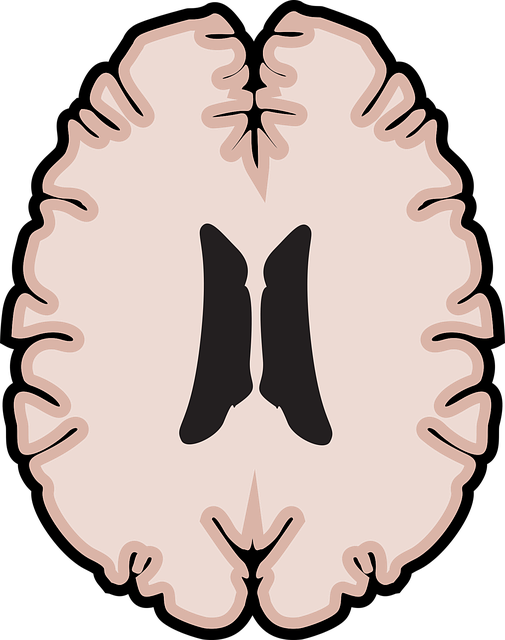Arvada Adolescent and Teen Therapy uses data analysis to provide effective, personalized mental health care for young people. By studying trends in survey responses, therapy sessions, and medical records, therapists identify risk factors and tailor interventions. This approach enhances emotional well-being promotion techniques, creates targeted content for the Mental Wellness Podcast Series, and informs public awareness campaigns. The ultimate goal is to improve crisis intervention, build resilience, and foster a supportive community environment for adolescents in Arvada and beyond.
Mental health data analysis is a powerful tool in understanding and improving adolescent well-being, particularly within the context of Arvada Adolescent and Teen Therapy. By delving into raw data, therapists can uncover valuable patterns and trends shaping young minds. This article explores effective data analysis techniques, from establishing foundational insights to interpreting results that guide informed therapeutic decisions. Discover how these approaches enhance care, enabling Arvada’s adolescent therapy services to deliver more personalized and impactful support for teens’ mental health journeys.
- Understanding Mental Health Data: A Foundation for Effective Therapy in Arvada Adolescent and Teen Therapy
- Data Analysis Techniques to Uncover Patterns and Trends in Youth Mental Health
- Interpreting Results: Translating Data into Informed Decisions for Teenagers' Wellbeing
- Enhancing Care with Data-Driven Approaches in Arvada's Adolescent Therapy Services
Understanding Mental Health Data: A Foundation for Effective Therapy in Arvada Adolescent and Teen Therapy

Understanding mental health data is a cornerstone for delivering effective therapy at Arvada Adolescent and Teen Therapy. By meticulously analyzing trends and patterns within individual cases, therapists gain valuable insights into what works best for each young person. This data-driven approach allows them to tailor interventions, ensuring that treatments are not only evidence-based but also aligned with the unique needs of each client. Through this method, Arvada Adolescent and Teen Therapy can significantly enhance emotional well-being promotion techniques, making therapy more effective and impactful.
This understanding extends beyond individual cases to inform the development of Mental Wellness Podcast Series Production and Public Awareness Campaigns. By recognizing common challenges and successful strategies, therapists can create targeted content that resonates with adolescents and teens. These initiatives contribute to broader public awareness campaigns, fostering an environment where mental health is openly discussed and support is readily accessible. Such comprehensive approaches, rooted in robust data analysis, are pivotal in the ongoing quest to improve mental wellness among young people in Arvada and beyond.
Data Analysis Techniques to Uncover Patterns and Trends in Youth Mental Health

In the realm of mental health, data analysis plays a pivotal role in understanding the complex landscape of youth well-being. Techniques such as statistical modeling and machine learning algorithms enable researchers and professionals to uncover profound patterns and trends within vast datasets. By employing these methods, it becomes possible to identify risk factors, predict outcomes, and tailor interventions for optimal effect. For instance, analyzing survey responses from adolescents seeking therapy in Arvada, Colorado, through advanced data analytics can reveal recurring themes related to stress, anxiety, or depression, guiding the development of targeted public awareness campaigns.
Furthermore, these analytical tools contribute significantly to mental illness stigma reduction efforts. By identifying and communicating trends, such as the impact of social media on youth mental health, compassion cultivation practices can be promoted more effectively. Data-driven insights foster a deeper understanding among both professionals and the general public, leading to more empathetic responses and supportive environments for those struggling with mental health issues. This approach not only benefits individual adolescents and teens in therapy but also contributes to broader community initiatives, ensuring a more compassionate and informed society.
Interpreting Results: Translating Data into Informed Decisions for Teenagers' Wellbeing

When analyzing mental health data, particularly for teenagers, interpreting the results is a delicate process that requires careful consideration. The data collected from various sources like surveys, therapy sessions, and medical records offers valuable insights into an adolescent’s emotional well-being. By translating this data into actionable information, therapists at Arvada Adolescent and Teen Therapy can make informed decisions tailored to each individual’s needs. This involves identifying patterns, trends, and potential red flags that may indicate underlying mental health issues or areas of concern related to emotional intelligence and inner strength development.
The interpretation process should focus on not just identifying problems but also recognizing strengths and resources within the teenager. This holistic approach, combined with evidence-based Emotional Well-being Promotion Techniques, enables therapists to design targeted interventions. By fostering emotional intelligence, for instance, professionals can help adolescents navigate their emotions effectively, which is crucial for their overall wellbeing. Ultimately, this data-driven perspective empowers therapists at Arvada Adolescent and Teen Therapy to guide young people towards healthier, more resilient futures.
Enhancing Care with Data-Driven Approaches in Arvada's Adolescent Therapy Services

In Arvada’s Adolescent Therapy Services, adopting data-driven approaches has significantly enhanced care strategies for young individuals. By analyzing trends and patterns in mental health data, therapists gain valuable insights into the unique needs and challenges faced by adolescents. This enables them to tailor interventions, ensuring that each client receives personalized support. For instance, identifying common factors contributing to anxiety or depression allows therapists to design targeted programs that boost confidence and build resilience.
Moreover, data-driven analysis plays a crucial role in crisis intervention guidance. By quickly recognizing emerging patterns, such as sudden spikes in self-harm incidents or specific triggers for emotional outbursts, therapists can proactively develop strategies to mitigate risks. This proactive approach not only improves short-term outcomes but also fosters long-lasting resilience among adolescents, ensuring they navigate life’s challenges with greater confidence and emotional strength.
The integration of mental health data analysis and interpretation within Arvada Adolescent and Teen Therapy services offers a promising path toward enhanced care. By employing advanced techniques to uncover patterns and trends, therapists can make informed decisions tailored to individual youth. This data-driven approach enables more effective therapy, ultimately improving the wellbeing of teenagers in Arvada. Through continuous analysis and adaptation, these services can evolve to better meet the diverse needs of their young clients.












